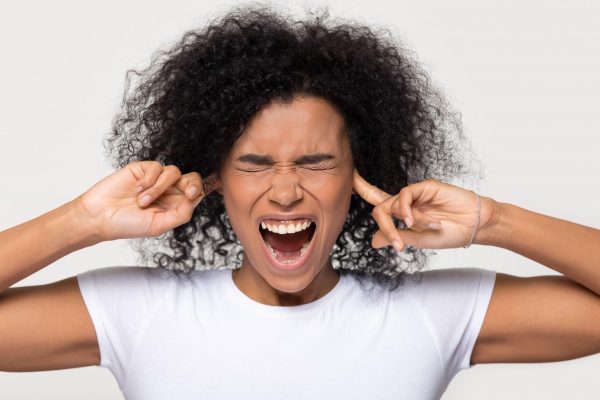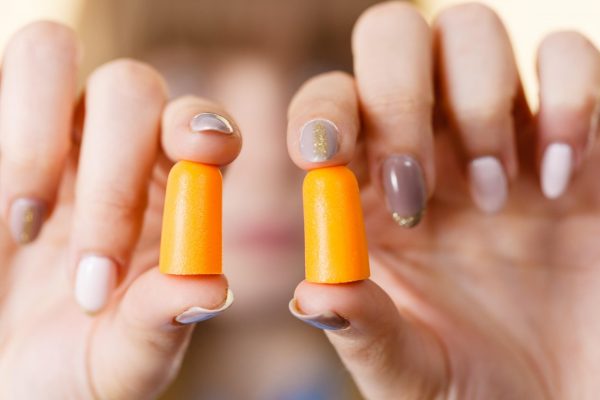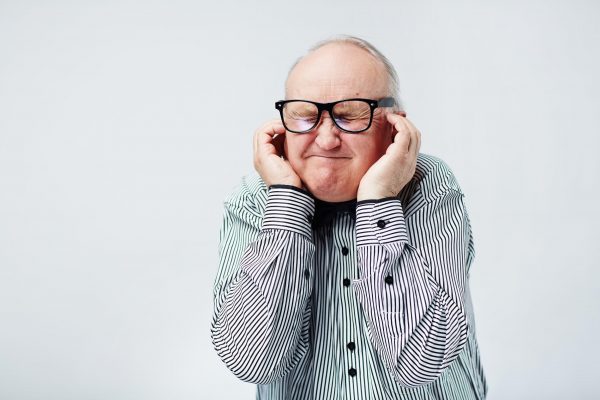
Most people are already aware of how important it is to protect your hearing. The issue sometimes is understanding how much noise is too much noise. If you aren’t sure when your hearing might be damaged you aren’t likely to take steps to protect your hearing adequately. It’s not always easy to tell when you might be doing more damage than you realize.
Some things make hearing damage more obvious, like being in an extremely noisy environment or listening to music with headphones on a high volume. However, these aren’t the only things that can damage your hearing. There are also everyday settings and normal situations that can put your hearing at risk.
Understanding when your hearing is at risk and knowing when something is too noisy is a key step in preventing hearing loss. Even if you’re already aware you have some hearing damage and are thinking about shopping for a hearing aid you can still protect yourself from further damage. You just need to be aware of when the noise going on around you is potentially too much noise.
What’s Too Loud?

Sometimes things happen in your daily life that are not always easy to gauge how much noise is too much for healthy hearing. Sound is measured in units called decibels and most professionals agree that anything below 70 decibels is a safe amount of noise for your hearing health. There are some ways you can gauge what’s above 70 decibels rather easily.
For example, a normal conversation you have with someone sitting next to you is about 60 decibels. This is a good way to measure other sounds going on in your life. If something you’re hearing is louder than someone talking with you in a normal voice (not whispering or yelling) there’s a good chance you’re going above the safe 70-decibel limit.
You can also think about the noise level of headphones used in a mobile device. If you’re using stock headphones and you turn your device up to its maximum volume you can expect that to be around 100 decibels. That’s much too loud to be safe for your hearing but it gives you an idea of what’s normal (talking) and what’s too much (headphones at full blast.)
You can also use other things you might be familiar with to gauge what the noise level is around you. If you think about a gunshot or a loud clap of thunder those are both around 120 to 140 decibels. Either of those sudden noises at that level can cause damage immediately. Knowing what can cause immediate damage gives you a reference for measuring the noise levels around you even if you’ve grown used to them.
If you use these general frames of reference to think about the sounds around you you’ll be able to keep a firm grasp on what might be damaging your hearing. Things like a TV that’s turned up to a loud volume can be harmful if you’re listening to that for a long period of time. It’s good to be aware of what normal habits you have that might be causing hearing damage.
What Can You Do To Protect Your Hearing?

Using the references you have for what’s normal and what’s too loud you can start to determine when you need to take extra steps to protect your hearing. Hearing damage is determined not only by the volume of a sound but how long you’re exposed to that sound. Damage, for the most part, occurs over time.
If you start to realize you have daily activities or habits that expose you to noise above a safe level you can do a few different things to protect your hearing. If the noise is unavoidable, such as loud noises because of your work environment you should make sure you’re wearing hearing protection at all times. It might not be comfortable but it’s very important to your hearing health.
If you are in an area with loud noises that you can get away from, you can leave the noisy area as soon as possible. Remember, the length of time you’re exposed to a dangerous decibel level plays a big part in how much your hearing is affected. Leaving loud areas as soon as you possibly can will go a long way to keeping your hearing as safe as possible.
You can also reduce the noise of mobile devices, computers, or TVs you use every day. This is especially important if you listen to any of those things using headphones, which you’ve already read can be quite loud and well above the safe decibel level for your hearing. If you notice that you can’t hear these things at a safe volume it’s time to talk to your doctor and have your hearing checked.
Why Is Protecting Your Hearing So Important?

Protecting yourself from hearing loss is the most immediate reason for protecting your hearing is so important. If you expose yourself to dangerous decibel levels habitually without making an effort to change anything, you can experience hearing loss much earlier in your life than you might expect. If you want to avoid the complications that come with hearing loss you need to take steps to keep your hearing health as safe as possible.
There are also other negative effects of being exposed to too much noise for too long a period of time. Recent studies have linked exposure to loud noises for extended periods of time without any hearing protection with higher rates of hypertension and high cholesterol. This is possibly due to the stress your body feels while being exposed to loud noises.
As you go about your day to day activities it really does pay to be more mindful of the noise levels around you. There are things you won’t be able to change, especially if you live in a busy city, but there are also things you will be able to do to make sure your hearing is safer.
Making choices to better protect your hearing will ensure that early hearing loss is something you have a lower chance of experiencing. Remember the next time you’re listening to your headphones on the max volume that turning the volume down even a little, reduces the chance you’ll be visiting your doctor for a hearing test or shopping for a hearing aid too soon. It might take a little adjusting to get used to listening to things on a lower volume but your hearing will thank you in the end.
This article was submitted by our friends at http://hearstore.com. We welcome articles from volunteers as opinion pieces or as regular contributions. If you are interested in writing an article or submitting an opinion piece, please email us
The views in this article are those of the contributor and are not endorsed by Deaf Unity as an organisation or by individual staff.

